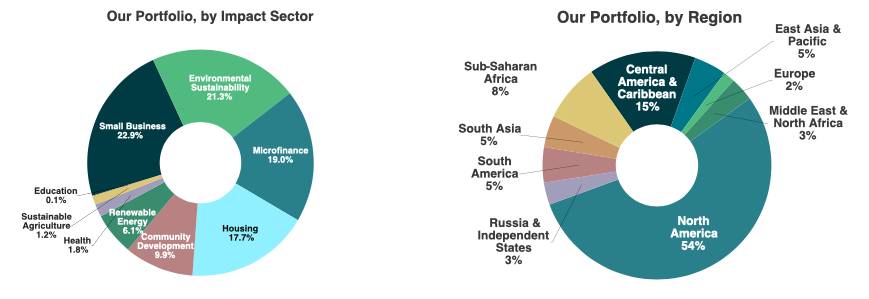Capital Impact Investment Note Review

Calvert Impact Capital's Community Investment Note offers investors an easy way to build a diversified, high-impact portfolio starting with as little as $20. Since 1995, the half-billion-dollar fund has made over 1,000 loans in over 100 countries with a 100% investor repayment rate. These loans support everything from affordable housing to clean energy.
Let's take a closer look at Calvert Impact Capital's Community Investment Note and whether it's suitable for your portfolio.
Who is Calvert Impact Capital?
Calvert Impact Capital began in 1995 as a part of the larger Calvert Foundation. In 1999, the organization created Community Investment Partners to support investors with due diligence and cut its teeth making impact investment products. And in 2005, the Community Investment Note became the first retail impact investment product with a CUSIP.
Calvert Impact Capital raised $1 billion and launched its online investment portal in 2014, enabling anyone to invest online with as little as $20 without using a brokerage account. Then, by 2017, Calvert Impact Capital became financially self-sufficient with a business model that was both sustainable and resilient in the face of economic swings.
Since its inception, Calvert Impact Capital has made over 1,000 loans and investments to more than 550 organizations across over 100 countries, supporting hundreds of thousands of businesses and improving millions of lives. The organization also goes beyond transactions to build the infrastructure needed to move capital to where it's needed most.
What is the Community Investment Note?
Calvert Impact Capital's Community Investment Note is a fixed-income security with maturities ranging from one to ten years and interest rates ranging from 0.4% to 2.5%. You can purchase the note online or by check with as little as $20 or through a conventional brokerage account using a CUSIP, where there's a $1,000 minimum.

Unlike many other impact investments, the Community Investment Note combines multiple impact areas into a single security. Investors in the note support affordable housing, community development, education, sustainability, health, microfinance, renewable energy, small business, and sustainable agriculture projects worldwide (see above).
Calvert Impact Capital's management team is also laser-focused on concepts like additionality. While many impact investments fund impactful projects, some of these projects may have been funded otherwise. The Community Investment Note focuses on projects that may not have received funding elsewhere, meaning you're making a real impact.
Drawbacks & Caveats to Keep in Mind
Calvert Impact Capital's Community Investment Note provides a relatively low return compared to other impact investing options. But, of course, these low returns translate to lower borrowing costs for funding recipients, meaning potentially higher impact-adjusted returns. Investors may need to balance their desire for impact with their return needs.
Given the Community Investment Note's diversification, investors seeking to impact specific geographies or areas may want to look elsewhere. For example, platforms like Energea or Renewables enable investors to participate directly in renewable energy projects. The Community Investment Note functions better as a one-stop-shop option.
The Bottom Line
Calvert Impact Capital's Community Investment Note is an excellent all-around impact investment given its broad sector and geographic focus. If you're looking for a single security to make an impact, the note is one of the only one-stop-shop options for maximum impact. However, those looking for targeted impact or high returns may want to look elsewhere.
If you're looking for more impact investment options, VirtueScout's growing database makes it easy to filter and narrow down your options to find the best opportunities for your portfolio or cash management needs.
Overall Rating
5out of 5 stars
Highlights
- Invest in social and racial justice issues nationwide.
- Support community health centers, charter schools, food retailers, and equitable access to housing.
Details
- APY
- 0.8%
- Term
- 1 - 20 Years
- Minimum
- $1,000